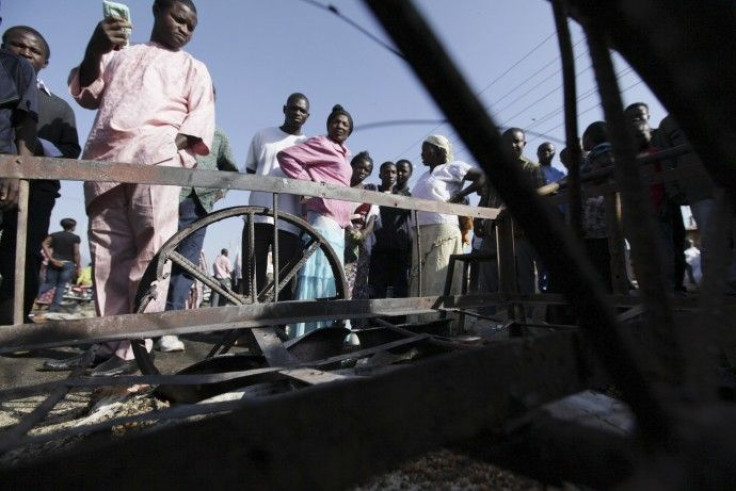Nigeria hit by fresh wave of religious violence after Christmas eve blasts killed 32

Fresh religious clashes that broke out in the city of Jos in Central Nigeria on Sunday reportedly killed at least one person while several other have been injured. Many buildings and cars were set ablaze in the violence between Muslim and Christian groups. Police and military units have been deployed to prevent further hostilities by the mobs. The clashes came just a day after three blasts rocked the city killing 32 people. Tensions are escalating as unconfirmed reports are also suggesting that irate youth belonging to a group have killed more than 10 people following the blasts.
Two explosions were reported at a footbridge and a catholic church on Christmas Eve, while other occurred at a popular food joint. More than 75 people sustained injuries after the blasts and have been rushed to nearby hospitals. Local media has reported that at the foot joint, an unknown person threw a packet into the crowd that triggered of an explosion. Several angry youth vowed retaliation and even objected to the evacuation of the corpses. Senior government officials had to intervene and pacify the crowds.
Nigeria's Chief of Army Staff Lt.-Gen. Azubuike Ihejirika, on Sunday, stated that the Christmas Eve attacks were part of an act of terrorism. Police also suspect that the blasts came in response to the conviction of 15 people by a court last week, for their involvement in instigating religious violence in the region earlier this March. More than a 100 people were killed in the violence as local Muslim and Christian communities clashed with each other as an act of revenge for earlier killings.
According to the recent report by International Crisis Group, violence has flared up there periodically for more than 30 years. Mainly in the form of urban riots, it has seen Muslims pitted against Christians, confrontations between different Islamic sects, and rejectionist sects against the state.
The relative calm that much of northern Nigeria had enjoyed for several years was broken by the emergence in 2009 of Boko Haram, a radical group that appears to have some links to al-Qaeda, it said. The report also added that in the build-up to the 2011 national elections, the worst-case scenario is that local violence will polarize the rest of the country.
© Copyright IBTimes 2024. All rights reserved.











